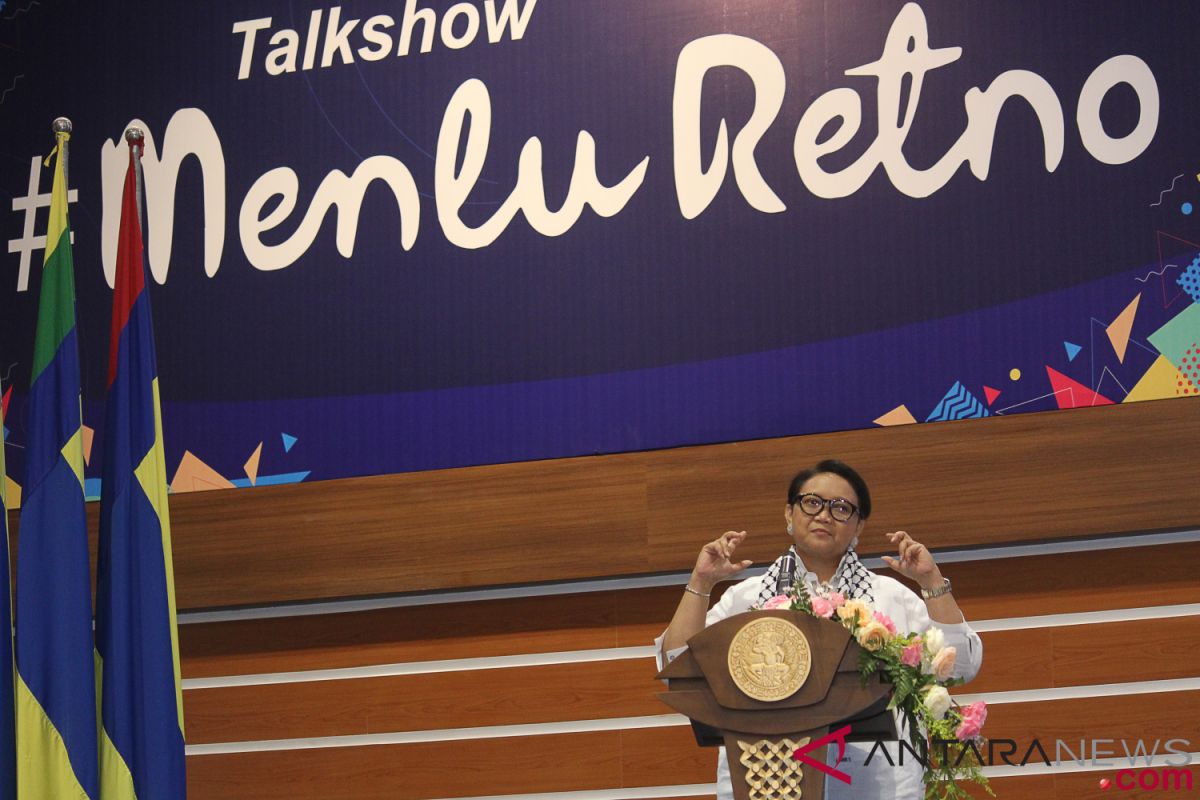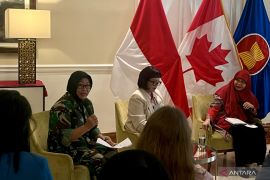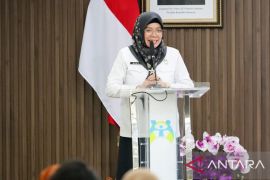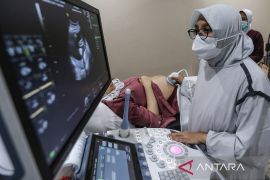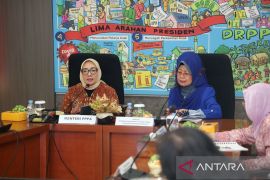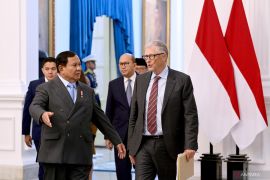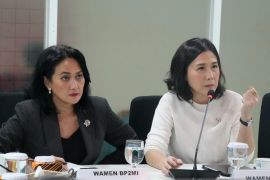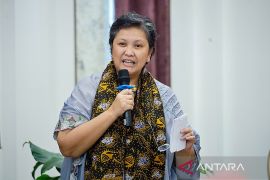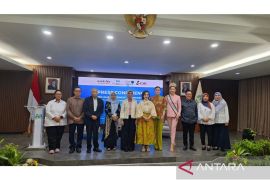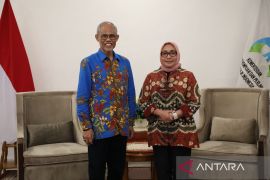She made a special mention about how for the past 15 years, 50 percent of the newest recruits among the Indonesian diplomatic ranks have been women.
At the national level, the female role in the government has increased, with 25 percent of the ministers being strong, empowered women, who proudly and capably called the shots over strategic issues.
"As a female Foreign Minister, I`m very supportive of female empowerment, so when I received this invitation (to become a keynote speaker), I confirmed immediately," Minister Marsudi said in a statement from the Indonesian Foreign Ministry here on Friday.
"I want to see females all over the world become agents of peace, tolerance and prosperity," Foreign Minister Marsudi said as a keynote speaker at the Arria-Formula United Nations Security Council (UNSC), with the theme `What`s Next for Women, Peace and Security in the Middle East and North Africa: The Potential of National Action Plans` at the United Nations Headquarters in New York.
Minister Marsudi welcomed the rise in global awareness over the issue of "Women, Peace and Security", including in the Middle East and North Africa. Unfortunately, the rise is uneven, and thus, women still often face massive challenges due to ongoing conflicts, violence and instability in the region, in which women and children are the most vulnerable.
"Women hold crucial roles in both conflict prevention and management, and also the peace-generating process after conflicts. That`s why citizens of the world must keep encouraging the strength of women`s roles in peace and security management at the international level," Marsudi remarked.
Furthermore, Marsudi pushed forward three important points that ought to be kept in mind when strengthening women`s roles in peace and security management.
First, every country needs to start National Action Plans (NAPs) as a starting point for all stakeholders. These action plans must include empowerment and crucial rights for females, namely political, economic and social rights.
Second, partnership is key to increasing the state`s capability to implement NAPs, accompanied by a strong leadership, an inclusive process, effective coordination, and the betterment of the law and related institutions.
Third, a strong political commitment to invest in things that could improve women`s role in peace-building decision making is sorely needed.
"Investing in women equals investing in peace," she said.
In this context, Marsudi conveyed Indonesia`s plan to become the host of the international workshop to increase female diplomats` capabilities in peace negotiation. Indonesia will also continue to increase the capacity and the number of female peacekeepers. Females are seen to be more able to win the hearts and minds of the local population, which is extremely beneficial for the peacekeeping mission.
By 31st of December 2018, it was noted that 77 female peacekeepers were among the 3,062 Indonesian peacekeepers currently serving in multiple peacekeeping missions all over the world. FM Marsudi added that Indonesia will deploy more female peacekeepers: 20 police officers to the Central African Republic as Formed Police Units (FPUs) and 26 as Individual Police Officers (IPO) to numerous missions all over the world.
The UNSC meeting with this particular topic, "Women, Peace and Security in the Middle East and North Africa", was jointly held by the government of Germany, Peru and the UK with full support from Indonesia.
It was executed with "Arria-Formula", namely informal discussions to encourage more relaxed and an open exchange of opinions, inviting numerous experts from civil society. Ministers from Indonesia, Germany, Kuwait, Belgium, the UK and Dominican Republics were also present.
Editing by Suharto
Reporter: Azis Kurmala
Editor: Suharto
Copyright © ANTARA 2019
